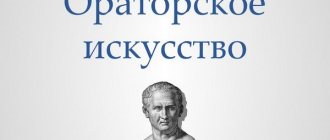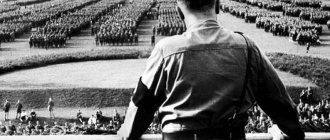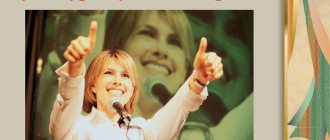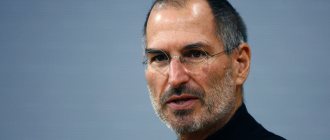12.09.2017
When looking for the next video content on YouTube or on television, from the first minutes of viewing, we always take an evaluative approach to the material shown. The first thing that catches your eye is the topic being covered, then the visual component of the program, and then the style of storytelling. But if with the first two everything is quite simple (after all, from the first seconds you can understand that the topic of “taking over the world by reptilians” does not interest you and switch to something else), then an understanding of how good the way of presenting even excellent material comes to to us after just a few minutes. It is the talent of the presenter or voice-over announcer that is the final touch of a complete acquaintance with the material being presented. After all, no one wants to listen to even a good story about the reign of the Roman Emperor if it is told by a man with a slurred tongue.
The ability to speak convincingly, beautifully and freshly, to win the minds of listeners, to lead millions - this is the characteristic that distinguishes the world's leading announcers, legendary politicians and famous figures in the history of mankind. Sometimes, just by their public appearances (live or on television), these people could change the course of history or the state of things in the world. At times, such speeches are not without errors, slips and inadmissible blunders, producing an even more explosive effect. Be that as it may, the most brilliant speakers are forever included in the annals of history, and their words are heeded years and centuries later.
You can probably name a lot of examples that you have known about for a long time, but we suggest recalling those that have become elementary and have entered the category of oratorical classics. For example, Cuban leader Fidel Castro once set a record by managing to hold listeners for 4 and a half hours, and not just ordinary spectators, but a meeting room of the United Nations. Of course, he is not the only one who managed not only to stun people with his performance, but also to create a whole whirlpool of consequences that change the world - sometimes for the better, sometimes vice versa.
Canadian Defense Minister and his "aliens"
Let's start with perhaps the most recent example. This is a speech by the former head of the Canadian Ministry of Defense, Paul Hellier, which, although it will not go down in the annals of history, will definitely remain in the memory of millions of people who were shocked by such a loud statement, which was made for the first time by an official.
In 2013, at a conference called “Civil Hearings on Declassification”, which took place in the capital of the United States, Washington, the Canadian minister literally horrified the listeners present at the event. He uttered words that had the effect of a detonated hydrogen bomb, striking everyone with its blast wave. “UFOs and aliens are as real as the planes that fly over our heads,” Hellier told a fairly sizeable audience. Other frightening things were said in this speech. For example, the former Minister of Defense spoke about exactly how many types of aliens have been on Earth, emphasizing that some of them live among us. According to him, at least two representatives of alien civilizations today work for the American government. However, he had made the same statements before, but the performance in Washington became a real hit among the multi-million army of network users.
Aristotle
Aristotle is another Greek orator. However, he became famous not for his gift of eloquence, but for his philosophical teachings.
Aristotle was a student of Isocrates. At the Academy of Rhetoric, the famous philosopher studied oratory, since he had a great interest in rhetoric. Over time, Aristotle published several books, the writing of which was inspired by his studies at the academy. The most famous of these is the work called Rhetoric.
The philosopher did not study the art of eloquence in order to put it into practice during public speaking. The purpose of studying oratory for Aristotle was to consider such categories as “syllable”, “sound”, “beginning of speech”, “verb” and others. In addition, he studied the social interaction between rhetorician and audience.
Fidel Castro and his record
In 1960, Cuban leader Fidel Castro succeeded in the unimaginable - he managed to hold such a respectable audience as the UN conference hall, filled with the heads of government of the world's countries gathered for the 15th session of the UN General Assembly, speaking to it with a continuous speech lasting 269 minutes. It was this speech by the father of the Cuban revolution that created a precedent, after which the international organization made changes to its regulations introducing restrictions on the timing of speeches by speakers.
Fidel Castro has long been known for his fiery speeches and ability to ignite the hearts of millions. And it is not surprising that a quarter of a century later he managed to break his own record. In 1986, during the 3rd Congress of the Communist Party of Cuba in Havana, he managed to hold the attention of the audience, according to some sources, for more than 7 hours. By the way, there were sources who claimed that the politician’s speech lasted not 7, but 27 hours, but no one believed this statement. It is noteworthy that all this time the commandant, who at that time was, for a second, almost 80 years old, spoke exclusively while standing and without faltering at all, constantly emphasizing that he felt great.
Demosthenes
A little later, Demosthenes lived - he is rightly called the greatest Greek orator. Demosthenes attracted attention with his appearances in court: the young man's guardians squandered his father's fortune, and Demosthenes sought the return of the funds. He managed to regain only a small part, but his skillful speeches at court hearings did not go unnoticed. Demosthenes dreamed of glory, he studied with the outstanding Iseus of Athens, and took Pericles, the “father of Athenian democracy,” a commander and master of eloquence, as an example for himself. During the time of Demosthenes, the Athenian public was spoiled by public speaking, the listeners were sophisticated. They expected from public speakers not only the beauty of style and deep content of speeches, but also a beautiful, almost theatrical presentation: staged gestures, facial expressions. By nature, Demosthenes could not boast of outstanding characteristics: he had short breathing and a weak voice. In addition, he had a habit of nervously twitching his shoulder. To overcome these shortcomings, Demosthenes used a technique well known to everyone who taught diction: he spoke by putting pebbles in his mouth. To make his voice stronger, he rehearsed speeches on the seashore: the noise of the sea replaced the noise of the crowd. And to develop breathing, I read poets while climbing steep paths. He practiced facial expressions in front of the mirror. As a result, with perseverance he overcame his shortcomings, and although Demosthenes’s very first speeches were not successful, he did not give up and subsequently made a brilliant political career.
Steve Jobs and his motivation
“Death is perhaps the best invention of evolution. It is she who is the reason for all changes and any progress. She always clears away the old to make way for something new.” This legendary speech was delivered by the equally legendary Apple CEO Steve Jobs before his graduation from Stanford University in the summer of 2005. On that day, Jobs had long been in the role of an idol of the modern era of the scientific and technological revolution and the greatest “visionary” in history. At that time he already knew about his fatal illness.
Despite the fact that the head of one of the most innovative corporations on the planet had previously made almost historical speeches, these are his words that are considered the most legendary. Many experts even quote his speech for motivational purposes. And there really is a reason for it. “Your time is very limited, don’t waste it on living someone else’s life. There is no need to live by the thoughts of strangers - this is the trap of dogma. Listen to your inner voice through the veil of other people's opinions. Find the courage to follow your own intuition and your own heart. Everything else is secondary,” these words came from the lips of a true legend in the world of modern technology, marketing and design.
It is noteworthy that it was precisely because of this speech by Steve Jobs that the Ukrainian politician Raisa Bogatyreva was disgraced at one time. During a speech to audiences at one of the Kyiv universities, she appropriated entire passages from this famous speech by the head of Apple.
What is modern oratory and rhetoric?
Today, modern general rhetoric, based on such disciplines as philosophy, psychology, aesthetics, ethics and linguistics, is able to form the broadest oratorical competence, which can ensure the level of oratorical skill in all forms of speech communication. If logic is responsible for the coherence and thoroughness of speech, and grammar demonstrates the correct use of words, then rhetoric contributes to the consistent and accurate presentation of thoughts. Thus, the goal of modern rhetoric is to teach a person, during any communication, to successfully “manage” the process of transmitting his message, as well as the process of successfully perceiving this message on the part of the listener.
The oratory skill that a person acquires after modern rhetorical training is his most effective calling card, which can reliably guarantee a successful professional and personal future.
Today, rhetoric is already a scientifically based theory and practice of modern oratory.
It is based on a thoughtful, always targeted, and therefore appropriate and effective both in its objectives and in the manner of presentation, presentation to the audience. Modern speeches, if they are created according to the laws of oratory, allow the authors - modern speakers - to become noticeable, memorable and recognizable, without attracting additional funds. Whether it's money or connections.
As he said: “Eloquence is the worker of persuasion.” Indeed, the skill of persuading clients is sometimes very conducive to career advancement.
It should be remembered that public speaking is not an innate talent; it can and should be trained and developed. The science of “rhetoric” is the same science as physics and chemistry, and with some effort, anyone can master it.
Rhetoric in the modern world: the “Iron Lady” Margaret Thatcher
Nelson Mandela: "Dying for your ideals"
“I fought not only against white supremacy, but also against black supremacy.” I have never ceased to honor the ideals of a free democratic community in which people could live in harmony and enjoy comparable opportunities and rights. It is this ideal that I strive for, it is for this that I am ready to live. But, if this is required of me, for the sake of this same ideal, I am ready to die with the same confidence.”
This piercing speech, full of emotions and faith in a better future, comes from the mouth of Nelson Mandela, a man whose titanic efforts in South Africa once defeated the most dangerous infection on the body of humanity under the name of apartheid. It was this policy of racial segregation that was carried out by the then ruling National Party in the country.
Mandela dared to make that legendary speech in the courtroom that would sentence him and several of his supporters to life imprisonment a day later. Years later, there will be release, and major political success, and winning the post of President of South Africa in the first free democratic elections in the country. But on that day, millions listened to a hero who was ready to sacrifice himself for the sake of only one goal - equality and justice.
Greek Masters of Public Speaking
Most of the greatest speakers in history come from Ancient Greece. This is due to the fact that it was there that the art of oratory first appeared.
The first on the list of masters of public speaking are the residents of the capital of Greece - Pericles, Lysias, Demosthenes and Aristotle. They are considered to be the most famous speakers.
They paid great attention to the movement of their hands and their postures. Also, to be convincing, the masters tried to be original and expressive. They always thought through their speeches so that each of them was unique, had a clear structure and logical conclusion.
Many speakers used elements of humor and satire in their speeches. This allowed them to attract more listeners and gain their sympathy.
Winston Churchill and his Iron Curtain
British Prime Minister Winston Churchill once knew how to play with words and meanings as if Vivaldi was extracting intricate sounds from the violin of the best master in history. The politician was witty, eloquent, balanced, but this was only one side of him. On the other hand, he could instantly turn into a caustic, rude and rash speaker, while maintaining his unique charm. And if there are those among you who still consider themselves a master of the epistolary genre, start biting your lips right now. Alas, the name of the best has long been known. There are no such speakers as Churchill and, most likely, there will never be any more. Or are your speeches also disassembled into quotes down to the last brick, turning them into millions of aphorisms that are still being replicated? Same thing.
But Churchill’s most famous speech was his speech to students at Westminster College in the USA. It was after his “Fulton speech”, delivered in March 1946, that people in Moscow first started talking about the preconditions for the beginning of the Cold War, and the world press enthusiastically picked up the phrase “Iron Curtain”. On that day, the head of the British government said: “From the Baltic Stettin to the Adriatic Trieste, across the entire vast continent, the iron curtain has fallen.”
Vladimir Lenin
Vladimir Ilyich was born in 1870 in Simbirsk. On July 6, 1923, he was appointed chairman of the Council of People's Commissars of the Soviet Union. Lenin held this position for less than one year. From 1917 to 1924, Vladimir Ilyich was the chairman of the Council of People's Commissars of the RSFSR.
On his way to power, Lenin was forced to develop his oratory skills. He communicated a lot with Soviet people in a language they understood. His distinctive feature was the ability to understand the crowd, feel its mood and manipulate it in his own interests. Lenin did not often give monologues. Usually he tried to conduct a dialogue with his listeners. Vladimir Ilyich was always very laconic, clearly expressing his thoughts, using guiding hand gestures to have a greater impact on his listeners. Many phrases uttered by Lenin at his speeches eventually became aphorisms.
John Kennedy and the new vector
“Ask not what your country has done for you, ask what you could do for your country,” this quote, which became part of, without exaggeration, the historic inaugural address of the 35th President of the United States, John F. Kennedy, has long been the stuff of legends. Meanwhile, it was delivered on January 20, back in 1961, and today is considered one of the standard speeches demonstrating the fullness of oratory.
During a speech on the occasion of his official inauguration as president of the country, the young and progressive owner of the oval office, Kennedy, publicly and boldly proclaimed a plan according to which the new foreign policy of official Washington should develop. “We would like every nation to know that the United States is willing to pay the highest price, bear any burden, endure any difficulty, support any of our partners or fight any of our enemies - all in order to be able to survive and achieve freedom,” the newly-minted head of state said from the rostrum that day. It was in this speech that many experts at one time saw the prerequisites for the emergence of a tangible and full-fledged Cold War, relegating Churchill’s statements to the background. Let us risk disagreeing with them and recall that the most important points in Kennedy’s speech were the words about a large-scale struggle against the most dangerous enemies of every person on the planet. Kennedy was referring to disease, inequality and poverty, war, conflict and tyranny. Answer yourself honestly, do you see in this idea an attempt to contrast the United States with the country’s main antagonist on the world stage at that time - the Soviet Union?
Marcus Tullius Cicero
Greece became the birthplace of oratory; it gave the world many outstanding speakers. This was required by the very way of life of the Hellenes. But the baton of eloquence was successfully picked up by Rome, which borrowed a lot from Hellas. One of the outstanding rhetoricians of Rome was Marcus Tullius Cicero. Cicero owes his dizzying career solely to his own perseverance and oratorical talent. He came from a modest, humble family and from birth had very modest opportunities to become an influential person. However, thanks to his oratory talent, he entered the Senate and became consul. You can learn from Cicero yourself: he left a large literary legacy that has survived to this day, and his letters formed the basis of European epistolary literature. Before becoming famous and gaining recognition, Cicero studied Greek poets and prose writers - he had an excellent command of the Greek language. His teachers were great rhetoricians: Mark Antony and Lucius Licinius Crassus. Since in the time of Cicero it was necessary to know Roman law well, the future consul studied it with Quintus Mucius Scaevola, the most popular lawyer of his time. Cicero's first success came with the speech “In Defense of Quinctius” - it was written and delivered to return illegally seized property. His second famous speech also defended the wrongfully offended: a native of the province of Russia, who was unjustly accused of parricide. In this case, Cicero showed himself not only to be a brilliant orator, but also a real detective: he took the trouble to personally visit the crime scene and investigate the circumstances. Cicero's speeches were structured according to all the rules of rhetoric of that time: they included direct appeals on behalf of the accused and a refutation of the prosecution's arguments.
Martin Luther King - the rights of blacks against the backdrop of white Lincoln
“I have a dream...” - many modern politicians regularly try to use this immortal phrase in their election propaganda speeches, but invariably fail. Why? It’s just that all of them are not worth an inch of the land on which one of the greatest orators and minds once walked - the African-American preacher and desperate fighter for full civil rights for black Americans, Martin Luther King.
His legendary speech, which began with these very words, was aimed at a bright new future in which all people would have equal rights and responsibilities, regardless of the color of their skin. On that day, the phrase about the dream was heard live by three hundred thousand American citizens. Perhaps some of you yourself remember how it lasted? We'll give you time to refresh your memory and test yourself.
“I dream that one day, on the “red hills” of Georgia, the descendants of slaves and their slave owners will finally be able to sit together at one fraternal table,” it was in these still exciting words that King saw the only future of America. This speech was delivered by the preacher in August 1963 on the stairs of the Abraham Lincoln Memorial, with a dazzling white statue of the 16th President of the United States seated in the background, who achieved the abolition of slavery. This happened just during the historic “March on Washington” - the most important episode in the movement for equality and civil liberties in the United States. Moreover, not only in the fight for equal rights, but also for personal freedoms, for jobs, for the rejection of unjustified harassment based solely on race. Later, this speech would be called the best speech of the twentieth century.
Historical reports remember more than a dozen of the most important phrases and sentences spoken from the stands, people's councils, the stage of television studios and simply on the streets of cities. All of them, partially or completely, changed ideas about the world, citizenship, culture and much more. Now the times of heated oratorical discussions have passed to a new generation. In their lyrics, African-American hip-hop performers raise vital topics, video bloggers in front of cameras offer heated discussions that gather thousands of dissatisfied opinions, and public speeches of activists are replicated with instant speed.
But what does today's action need to become revolutionary and create a historical precedent? We invite our readers to select a few really important statements or powerful speakers who are now delighting the ears of many listeners around the world. Perhaps you enjoy messages from politicians and phrases like “Make America Great Again” or motivational sayings from business gurus Elon Musk and Jeff Bezos? Share your examples in the comments so that everyone can join the real cultural heritage of our time.
Russian speakers
In Russia, too, there have always been famous outstanding speakers, which include such famous personalities as Kony, Trotsky, Zhirinovsky, Putin and others.
Anatoly Fedorovich Koni
Anatoly Fedorovich was engaged in legal and social activities at the end of the 19th and beginning of the 20th century. He urged everyone to maintain morality in the legal process. Kony's speech was always lively and dynamic, never sounding monotonous.
He believed that speakers speaking in court should be fair and defend the truth. In his speeches, Kony was not dry, but gave free rein to his emotions. But he knew how to combine facts with feelings so that the text had a positive impact on the minds of the judges. This speaker's defense speech left no doubt that the verdict would be pronounced in his favor.
Anatoly Fedorovich Koni had high individual and socially significant moral qualities, followed the rules of honor, always delivered his speech clearly, without using terminology unknown to others, and was fluent in eloquence.
Lev Davidovich Trotsky
Many people said that Lev Davidovich is the best speaker of the 20th century. He had a powerful timbre of his voice, his words were pronounced clearly and understandably. He was an intelligent and active man who was feared by many opponents. The great orator himself did not feel fear of a single person, so he said everything to his face, without hiding anything.
Trotsky's speech was always structured consistently, logically and briefly. He was good at convincing people, so he had a large number of associates. His gift of eloquence was clearly visible during political speeches.
Vladimir Ilyich Lenin
Great orators of the 20th century - this list should undoubtedly include Lenin. Vladimir Ilyich gave speeches that were accessible and understandable to every representative of the people. He had a great sense of people's mood, so he could entice them with almost any idea. Most of all, he used dialogue, communicating with people, answering their questions.
His speech was distinguished by brevity and specificity. He also used directing hand gestures, which only increased his influence on people. Lenin had a charisma that attracted all listening people. His phrases became catchphrases, they were used by other people and published in publications.
Vladimir Vladimirovich Putin
Vladimir Vladimirovich is perhaps the most famous Russian political speaker of our time. He speaks easily, using a bit of humor in his speech. His speeches are always well thought out and contain nothing superfluous. The gestures of the hands are smooth, which does not distract people’s attention at all, and once again emphasizes confidence.
This politician is distinguished by restraint and calmness when communicating with people or colleagues, not allowing himself to say a harsh or rude word. He always answers people’s questions clearly, as he is well versed in many areas of life.
Vladimir Volfovich Zhirinovsky
Vladimir Volfovich is distinguished by the fact that his speech is always accompanied by emotional overtones, it is unpredictable and even sometimes has some aggressiveness. His performances are more like a show. He often puts pressure on his interlocutor with his words and uses energetic gestures.
Zhirinovsky has strong charisma. But he is not only a great orator, but a very smart and fair politician. Vladimir Volfovich can easily start a dispute, as he understands any topic. He is not distinguished by restraint, he always says what he thinks, expresses his emotions, and can often allow himself to say too much to focus attention on his person.
All the best speakers in the world mentioned above are not the entire list of outstanding masters of eloquence (let’s not forget about such great speakers as James Humes, Abraham Lincoln, Steve Jobs, etc.). It is difficult to answer the question of who is the best speaker of all time. Some had the gift of eloquence from birth, while others went a long way, coping with their speech deficiencies and acquiring oratory skills, becoming great. But one thing can be said for everyone: thanks to their wonderful eloquence, they were able to become famous figures in public and political life.
Fox
Lysias was born and raised in Athens. She and her brother had a large fortune, which became the cause of discontent on the part of the tyrants who came to power in Ancient Greece. Lysias' brother was killed, and the speaker himself had to flee the city.
The return to Athens happened after the triumph of democracy. Lysias took part in the trial of one of the tyrants who was responsible for the death of his brother. The speaker entered with a judicial speech, which was his first. In total, during his life he gave more than four hundred speeches, but less than a tenth has survived to this day.









